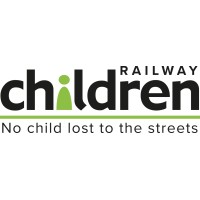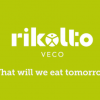Call for Consultancy at Railway Children
Job Overview

Call for Consultancy at Railway Children
TERMS OF REFERENCE (TOR) ON A TECHNICAL REVIEW OF EXISTING POLICIES AND LAWS FOR ENHANCING SAFETY, SECURITY, AND SAFEGUARDING MEASURES AROUND TRANSPORT HUBS IN TANZANIA
Introduction
Railway Children Africa (RCA) is a Tanzanian NGO dedicated to working with street-connected children since our inception in 2010. Throughout this time, RCA has collaborated closely with the government, particularly through the Ministry of Community Development, Gender, Women, and Special Groups, as well as with Local Government authorities in the regions where our projects are implemented. Our efforts have focused on strengthening child protection mechanisms to ensure that children are effectively res cued and supported in growing up within safe family environments. Our strategy focuses on four key action areas for change in order to protect the most vulnerable children before, during and after they are alone and at risk on the streets.
- Protecting vulnerable children and supporting their families.
- Strengthening community responses
- Strengthening child protection systems and policies
- Strengthening the evidence based
Background to the project
Transport hubs in Tanzania, including bus terminals, are critical for connecting communities and supporting economic activities. Unfortunately, children separated from their families often gravitate towards Tanzania’s cities, primarily by bus. Upon arrival at bus terminals, they find themselves without safe spaces, leaving them highly vulnerable to exploitation. In response to this, RCA has shifted its focus in recent years towards bus terminals, adapting a child-friendly station model. This model involves collaboration with all stakeholders at these locations to ensure the safety of vulnerable children and adults.
Presently, child protection mechanisms at bus terminals are scarce. Moreover, Tanzania lacks policies that clearly outline the respon sibilities of agencies at transport hubs in protecting vulnerable individuals, as well as mechanisms to ensure that companies incorporate safeguarding measures in the design and construction of public spaces.
In June 2024, RCA formed a partnership with the Foreign, Commonwealth & Development Office to launch a project aimed at enhancing safety and security measures around transport hubs to protect children and vulnerable adults. To ensure the effective implementation of the project, RCA intends to commission a consultant to undertake a comprehensive gap analysis of existing laws, policies, regulations, and Standard Operating Procedures (SOPs) from key ministries:
- Ministry of Transport
- Ministry of Works
- Ministry of Community Development Gender Women and Special Groups
- President’s Office – Regional Administration and Local Govern ment (PO-RALG)
Purpose
The purpose of conducting this gap analysis is to develop evidence that will support advocacy initiatives under the FCDO Corridor for Growth project. This evidence will be used to inform and enhance advocacy efforts aimed at improving safety, security, and safeguarding measures for children and vulnerable people around transport hubs.
Objective of the Consultancy
The primary objective of this consultancy is to conduct a detailed gap analysis by reviewing and assessing the existing laws, policies, regulations, and SOPs from the specified ministries. The analysis should identify gaps, challenges, and opportunities to enhance the legal and regulatory framework for the safety, security, and safe guarding of children and vulnerable people around transport hubs.
Scope of Work
The consultant will be expected to take a period of 26 working days spread across two months starting from September to Octo ber 2024 to do and not limited to the following specific activities:
i. Hold an initial meeting with project team to explain context of the review, particular issues to be looked at, challenges, expected outcomes, agreement on the scope of work and contents of a work plan
- Conduct Desk research and Review: Collect and review all relevant laws, policies, regulations, and SOPs related to safety, security, and safeguarding from the specified ministries. Familiarise her/himself with the existing government policies and laws, taking stock of the existing policies and laws identify key informants (experts, institutions) to interview during the consultancy period.
iii. Gap Identification: Identify gaps, overlaps, and inconsistencies in the existing framework that could impact the protection of children and vulnerable groups around transport hubs.
- Stakeholder Mapping and analysis: Develop a comprehensive stakeholder map, identifying key stakeholders, their roles, and their influence on the legal and regulatory framework.
- Stakeholder Consultation: Conduct targeted key informants on some of the grey areas realised during the desk review research. Engage with key stakeholders from the relevant ministries, civil society organizations, and other relevant bodies to gain insights and validate findings.
- Conduct a participatory feedback session with the project team and other stakeholders to share key findings before writing the final report.
vii. Recommendations: Develop actionable recommendations for enhancing the legal and regulatory framework, including necessary revisions, new policies, or SOPs.
viii.Reporting: Prepare a comprehensive report summarizing the findings of the gap analysis, stakeholder map, and recommen dations, and present these to key stakeholders.
Key Deliverables
The consultant is expected to deliver the following:
- Inception Report: Outlining the methodology, comprehensive work plan for the technical review process indicating specific tasks, responsibilities, and timelines within 3 days of contract signing.
- Stakeholder Map: A detailed map identifying key stakeholders, their roles, and influence concerning the legal and regulatory framework.
- Draft Gap Analysis Report: Written interim report indicating strengths, weaknesses of the current policies and legal frame work and areas of improvement (short term and long term). Including the initial findings, stakeholder map, and recommen dations.
- Final Gap Analysis Report: Submit a comprehensive technical review report incorporating key findings and verified during the interview and participatory session with the key stakeholders, including a finalized stakeholder map and refined recommen dations.
- Presentation of Findings: A presentation of the findings and recommendations to project team and key stakeholders.
Duration
The consultancy is expected to last for a period of 26 working days, starting from the date of contract signing. The timeline for the deliverables is as follows:
- Inception meeting and Report: 3 days from the start date.
- Desk Review: 8 days.
- Stakeholder Map: 5 days.
- Draft Gap Analysis Report: 5 days.
- Final Gap Analysis Report and Presentation: 5 days
Consultant Qualifications and Experience
The ideal consultant should have the following qualifications:
- Advanced degree in governance, Law, Public Policy, Social Sciences, or a related field.
- Minimum of 7 years of professional experience in legal and pol icy analysis, strategic management, public policy, governance, organizational management and institutional/organizational development particularly in the areas of child protection, safety, and safeguarding.
- Proven experience in conducting gap analysis or policy reviews in Tanzania or the East African region.
- Experience in developing policies in the developing countries in particular Tanzania context
- Experience in communication and writing of public policy
- Extensive conceptual and practical knowledge of responsibility of and workings of the government
- Strong understanding of the legal and regulatory framework in Tanzania.
- Deep understanding of how Tanzanian ministries operate, including the process of reviewing key ministry documents and collaborating with the ministry to formulate and approve
- Deep understanding of how Tanzanian ministries operate, including the process of reviewing key ministry documents and collaborating with the ministry to formulate and approve policies.
- Experience in stakeholder mapping and engagement with government ministries and civil society organizations.
- Excellent analytical, communication, and report-writing skills.
- Experience of working and collaborating with stakeholders in-cluding governments; civil society and communities in Tanzania
- Demonstrated ability of analytical and report drafting work from the previous work done on the policy review engagement
How to Apply
- Qualified and interested candidates are hereby requested to apply (either as a firm or a team or individually) .
The application should contain the following:
- A technical proposal with brief description of why the individual considers him/herself as the most suitable for the assignment, and a detailed clear methodology, on how they will approach and complete the assignment
- A financial proposal including a breakdown of costs.
- The technical proposal should also contain personal Curriculum Vitae (CV) of the consultant or consulting team, highlighting relevant experience as well as the contact details (email and telephone number)
Contact details (email and telephone number of at least three professions references from the previous similar assignments.
Applications should be submitted by 13th September 2024 to:
[email protected]
Only selected candidate (s) will be contacted about the outcome of their applications.
Evaluation Criteria
Proposals will be evaluated based on the following criteria:
- Relevant experience and qualifications including experience of working with Tanzanian Ministries 40%
- Methodology and approach, including stakeholder mapping 30%
- Financial proposal 20%
- References and previous experience with similar assignments 10%
Reporting and Supervision
The consultant will report directly to RCA’s Strategic Liaison Manager, Rose Kagoro, with a dotted reporting line to the RCA Executive Director.
Regular updates and progress reports will be required throughout the consultancy period.




